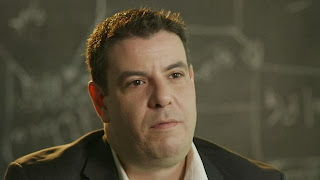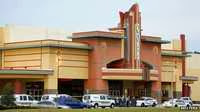second term in office and threatens to undermine his potential 2016 presidential bid.
But in his annual State of the State address, Christie sought to change the subject — insisting the scandal
won't diminish his ability to do his job as governor and that he'll work to make sure a similar scandal doesn't
happen again.
"Mistakes were clearly made, and as a result we let down the people we are entrusted to serve. I know our citizens deserve better, much better," Christie said. "I am the governor and I am ultimately responsible for all that
happens on my watch — both good and bad. Without a. doubt we will cooperate with all appropriate inquiries to ensure this breach of trust does not happen again."
Christie made a brief mention of the scandal at the top of his annual address before the state Legislature, which has often laid out the governor's policy goals for the year.
But the speech, which detailed a new push on education and other policy goals, was largely overshadowed by the political scandal that has already claimed the jobs of two senior Christie aides and a handful of other political appointees.
Christie's remarks came a week after newly released emails revealed that some of his closest aides conspired
with Christie loyalists to orchestrate lane closings on the George Washington Bridge in September to punish political opponents. Christie fired one close aide and cut ties with
his top political adviser, while others resigned.
Christie has denied any knowledge of the traffic plot — insisting in a press conference last week that he had not
spoken to David Wildstein, a high school friend and Christie political appointee who arranged the lane
closures, "in a long time."
But the Wall Street Journal published a photo Tuesday that showed Christie with Wildstein on Sept. 11—the third
day of the lane closures, which by then had generated many local headlines because of the massive traffic gridlock leading to the bridge. The two were photographed together at a ceremony at the World Trade Center in New York marking the 12th anniversary of the 9/11 attacks.
A Christie spokesman did not respond to a request for comment from Yahoo News but told the Journal the governor had attended the ceremony and "had numerous interactions with public officials that morning."
Christie's speech Tuesday was a remarkable turn of events for a governor who entered the same speech last year a public hero for his handling of Superstorm Sandy.
Aides had hoped this year's speech would not only be a victory lap for his re-election win in November but also lay the policy groundwork that could cement Christie's status as a front-runner for the Republican presidential
nomination.
But at least one of the governor's supporters privately fretted whether Christie could overcome the drama with Republican donors and activists eager to pick a White House candidate who can go the distance in 2016.
"It's still early, but it has shaken a few people," the Christie supporter, who declined to be named discussing
the governor's political fate, acknowledged. "People want
someone who is a safe bet, who won't give us any big surprises in the middle of the race. … They are watching very closely how he handles this."
In his speech, Christie sought to firmly turn the page.
"What has occurred does not define us or our state,"Christie said. "The administration and this Legislature will not allow the work that needs to be done to improve people's lives in New Jersey to be delayed."
"I am the leader of this state and its people, and I stand here today proud to be both," he added. "Those of you
who know me know I am always determined to do better."
www.benlatestnews.com


















































